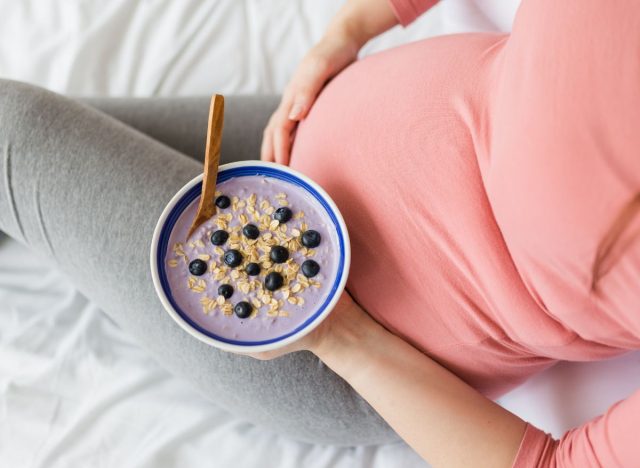7 Telltale Signs You Might Be Missing Out on Your Daily Protein Needs
In today’s health-conscious world, the buzz around protein is louder than ever. Social media is filled with fitness enthusiasts furiously tracking their protein intake, championing the myriad benefits that come from this essential macronutrient. But amidst all the noise, a crucial question arises: how do you really know if you’re falling short on your protein needs?
- Advertisement -
Amy Goodson MS, RD, LD, CSSD, a registered dietitian and consultant based in the vibrant Dallas-Fort Worth area, specializes in health, wellness, and sports nutrition. She points out that while many of us are hitting the bare minimum protein requirements (the RDA), there’s a good chance we could benefit from upping our intake. “Specific groups like older adults, athletes, those recovering from illnesses, and anyone on a weight loss journey typically have higher protein needs,” she explains. The truth is, protein requirements flex and stretch according to your age, activity level, body weight, and health aspirations. So, what’s the scoop? Let’s dive into the seven telltale signs that your protein intake may be lacking.
Protein Keeps You Feeling Satisfied
One of protein’s most underrated roles is its ability to keep your hunger at bay. According to Goodson, “People who consume a protein-rich diet—around 30% of their daily calories from protein—report feeling more satisfied, which curbs mindless snacking and overeating.” Less grazing leads to fewer calories consumed overall. Plus, let’s not forget protein’s vital role in building muscle and aiding recovery post-exercise. A well-rounded diet that includes high-quality protein sources, coupled with other nutritious foods, is fundamental for both strength and overall well-being.
7 Signs You May Be Protein Deficient
Now, let’s break it down. Here are seven potential signs indicating you’re not getting enough protein:
- 1. Tiredness and Weakness: Insufficient protein can lead to muscle loss, leaving you feeling drained and lethargic.
- 2. Slow Recovery After Workouts: Your body relies on protein to rebuild muscles. Without it, recovery feels longer and harder.
- 3. Thinning Hair and Brittle Nails: If your body can’t produce enough proteins like keratin, you might notice weaker nails and thinning hair.
- 4. Frequent Illness: A protein deficit can weaken your immune system, making it trickier to fend off viruses and infections.
- 5. Constant Hunger: Protein is the magical ingredient that keeps you feeling full; without it, you could find yourself perpetually peckish.
- 6. Slow Healing: Protein is crucial for blood coagulation and collagen production, meaning wounds may take longer to heal when you’re low on this macronutrient.
- 7. Swelling of Extremities: Known as edema, this could be a sign of insufficient protein since proteins help maintain fluid balance in your blood.
However, registered dietitian Lauren Manaker MS, RDN, LD, CLEC, CPT cautions, “It’s important to remember that these symptoms can stem from various other health issues. If you’re concerned, consulting with a healthcare professional is your best bet.”
A Protein-Packed Morning
If you’re looking to boost your protein intake, Goodson suggests kicking off your day with a protein-rich breakfast. “Consider delights like Greek yogurt parfaits with berries and whole-grain granola or eggs alongside oatmeal. A smoothie packed with milk, yogurt, and fruit is also a fantastic option!” For snacks, think string cheese, roasted edamame, or beef jerky. And when it’s time for meals, aim to fill at least a quarter of your plate with high-quality proteins like lean beef, fish, or poultry. The magic number? Aim for around 30 grams of protein at main meals and at least 10 grams in snacks.
How Much Protein Do You Really Need?
So, just how much protein should you aim for each day? Goodson provides a simple guideline: “For the average adult living a sedentary lifestyle, strive for 0.8 grams of protein per kilo of body weight.” To calculate your needs, divide your weight in pounds by 2.2 to convert it to kilograms and then multiply by 0.8. But remember, your specific protein needs might vary due to factors like age, activity level, and health goals. For example, athletes or expectant mothers may require additional protein for optimal support. If you’re unsure about what’s right for you, consulting a dietitian can help tailor advice to your lifestyle.
The insights provided here about protein deficiency and its signs echo crucial health conversations we’ve been having. Let’s make sure we’re not just spinning our wheels in the fitness frenzy but really nourishing our bodies as we strive for optimal health—after all, our bodies deserve the best. Report By Axadle




